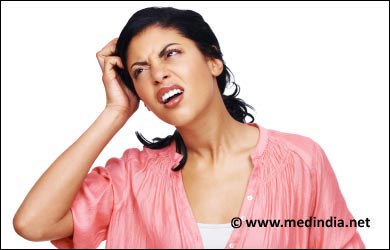- Seborrheic Dermatitis / Cradle Cap / Dandruff - (patients/patientinfo/dandruff.htm)
- Itchy Scalp – Causes, Treatment and Home Remedies - (http://www.primehealthchannel.com/itchy-scalp-causes-treatment-and-home-remedies.html)
- Itchy Scalp – Pictures, Causes and Treatment - (http://www.healthhype.com/itchy-scalp-causes-and-treatment.html)
About
Itching of scalp is a common problem. It could be due to dry skin, infection, inflammation, or a psychological cause.
An itchy scalp is often a cause of embarrassment in a public place. However, it is not always necessary that itching is a result of bad hygiene. Some skin diseases like psoriasis can also cause itching of the scalp. Sometimes, the itching is localized only to the scalp area. In other cases, it may extend to the rest of the body. Repeated itching can result in scratches or excoriations of the skin. This could promote bacterial infection.

Treatment of itching depends on the cause. Hence, it is necessary to arrive at a diagnosis of the cause of itching at the earliest.
Various causes of an itchy scalp are:
Dry Scalp: Some people have a dry skin including that of the scalp. The dryness results in itching. The itching could get worse in the winter months or following repeated washing of the hair with harsh shampoos. Such shampoos should be avoided and moisturizing creams and lotions should be used. Regular use of hair oil can help to reduce this problem.
Infestation with Lice: Infestation with lice, small parasites which suck blood, is common in females in crowded areas. The lice spread from one person to another through close contact. The bites of the lice result in itching especially behind the ears. Repeated scratching of the scalp results in excoriation of the skin. Bacteria may grow in the skin scratches resulting in infection. The condition is diagnosed by the presence of lice and the eggs of lice called nits in the hair. Use of special medicated shampoos and lotions helps to control the condition.
Fungal Infection
- Dandruff: Dandruff is a common scalp condition that appears after adolescence. It follows infection of an oily scalp by a small fungus called Malassezia furfur. The patient repeatedly scratches the scalp, which is followed by falling off of scales. It may be accompanied by temporary loss of hair. Dandruff in the presence of an excessively oily scalp with additional inflammation of the scalp is referred to as seborrheic dermatitis. In severe cases, scales may also be observed in the face area. Dandruff can be treated with shampoos containing ketoconazole, zinc pyrithione or selenium sulfide.
- Cradle Cap: Cradle cap is a condition that affects newborn children of 3 months or younger. In these cases, there is crusting over the head with loss of hair. The exact cause of this condition is not known. It may be due to excess secretion of sebaceous glands due to the influence of maternal hormones. The yeast, Malassezia furfur, may also play a role in causing this condition. The condition is usually harmless and gets better after the baby is around a year old.
- Ringworm Infection of the Scalp: Ringworm is a fungal infection that results in circular thick lesions. In the scalp, the area over the ringworm is accompanied by marked itching and breaking of hair. It responds to treatment with antifungal medications.
Bacterial Infection:
- Bacterial Infection of the Scalp: Bacterial infection of the scalp results in itching. Besides pus formation, oozing, crusting and matting of hair is also observed. Local or oral antibiotics are used to treat the condition.
- Hair Folliculitis: Inflammation of the hair follicle is called folliculitis. Folliculitis occurs because of bacterial or fungal infection. Besides causing pain, folliculitis can also result in itching.
Viral Infection
Chickenpox: Varicella zoster is a virus that causes chickenpox. Chickenpox may be associated with blisters in the scalp, which result in itching. The virus can also affect the nerves in older individuals resulting in shingles. Fluid-filled blisters are found along the nerves, with pain and itching along the nerves.
Inflammation
- Contact Dermatitis: Contact dermatitis is an allergic reaction of the skin to certain chemicals applied to the skin (in this case, the scalp) like shampoos, dyes etc. The itching is usually absent the first time the chemical is applied. However, subsequent applications may produce itching, oozing, crusting and scaling. The patient should avoid contact with the allergen and may require local steroid creams.
- Psoriasis of the Scalp: Psoriasis is a condition where the skin is covered with thickened flat areas called plaques. The plaques are covered with silvery scales. The plaques on the scalp are usually accompanied with plaques over the rest of the body, thus helping to diagnose the condition. Psoriasis of the scalp may also be accompanied by arthritis.
- Lichen Planus: Lichen planus is another inflammatory disorder that affects the skin including the scalp. It results in scarring and loss of hair over the affected part. It is treated with steroids.
Psychological Cause
Stress and anxiety can result in repeated scratching of the head, with subsequent loss of hair.
Frequently Asked Questions
1. Which doctor should I visit in case I suffer from itching of the scalp?
You should visit a skin specialist or a dermatologist in case you suffer from itching of the scalp.
2. How can lice infestation be treated?
Lice infestation is treated using medications that contain pyrethrins or permethrins. Recently, a medication containing ivermectin has also been approved by the FDA for the treatment of lice. The patient’s clothes and bed linen should be washed with hot water. Combs and hair brushes should be well cleaned. The furniture of the house should also be vacuumed to remove any lice around the house.
3. How can I know if I am suffering from a fungal infection of the scalp?
Your doctor will usually be able to diagnose a fungal infection of the scalp on examining the scalp. He may scrape out a few flakes and examine them under a microscope or a magnifying glass. In some cases, if the diagnosis is doubtful, he may take a biopsy of the lesion.
 MEDINDIA
MEDINDIA
 Email
Email






Hi All, I have an itching problem in my fore head mostly.But its not that intense like walking something over my head.My scalf is clean and i don't have a lice problem. My scalp is oily and sweaty most of the times and m suffering from hairfall from sometimes now.Is it a fungal related problem? If anyone can please suggest me what might be the reason .